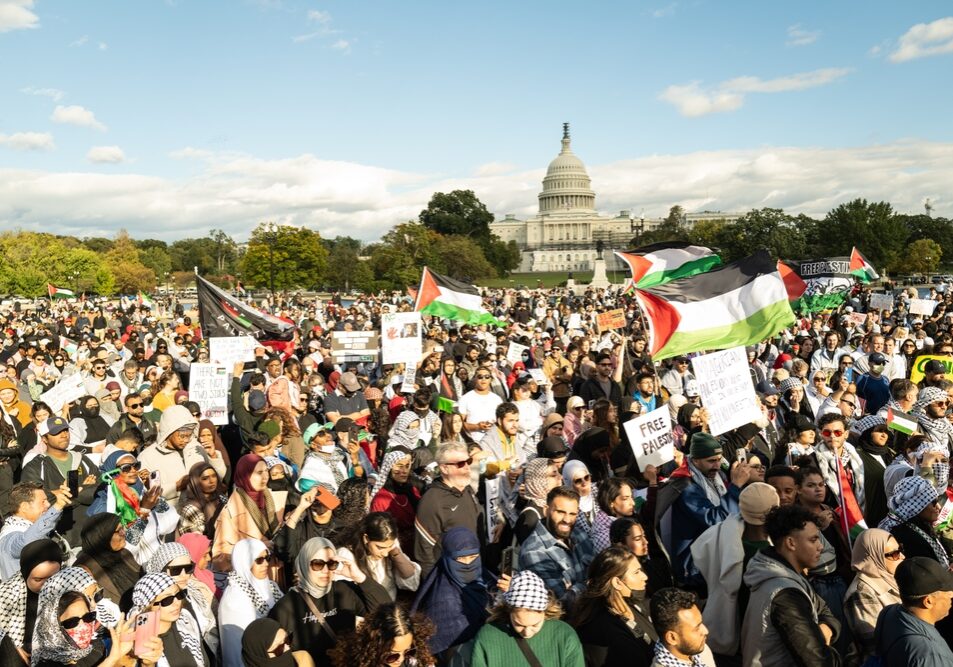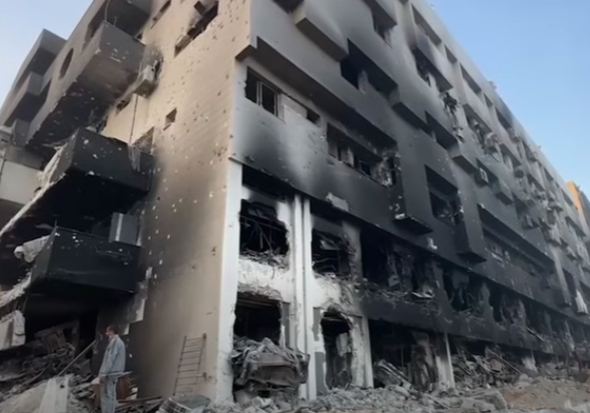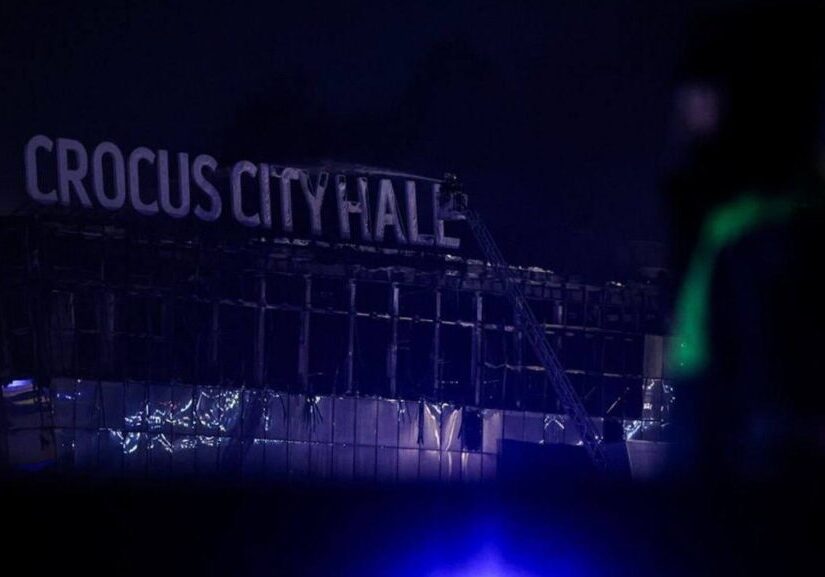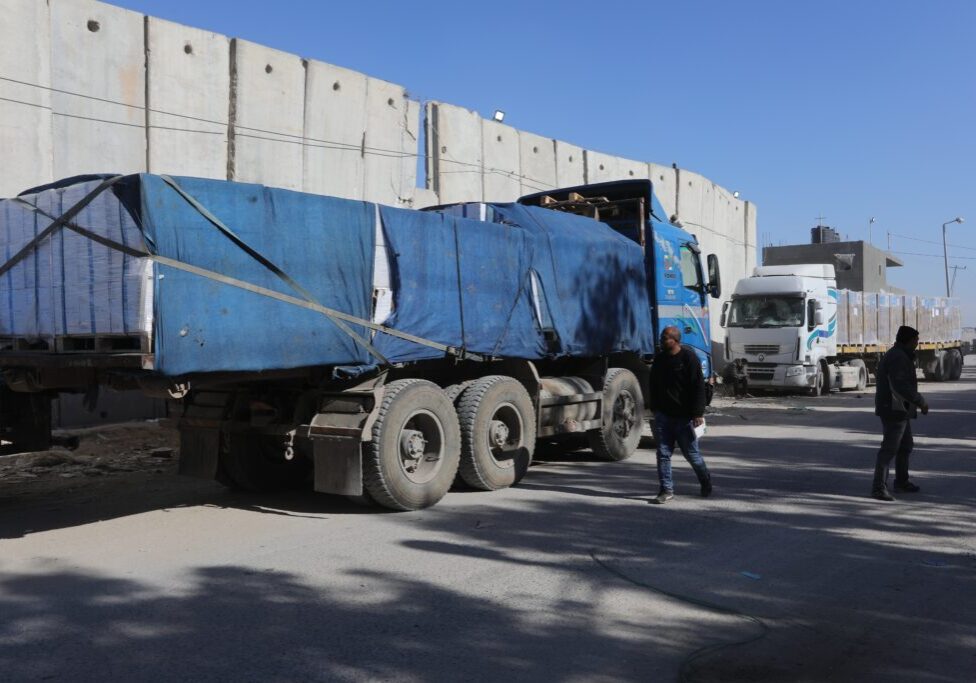FRESH AIR
UPDATES
Resumption of Israeli-Palestinian security ties shows why they matter
Aug 17, 2017 | Shmuel Levin
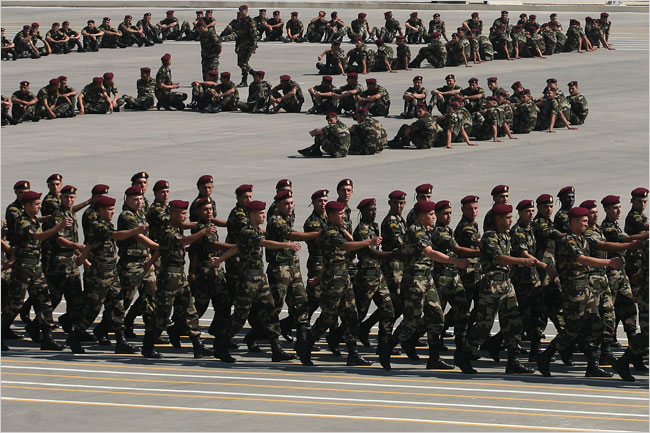
Shmuel Levin
In late July, Palestinian Authority President Mahmoud Abbas cancelled security coordination meetings between Israeli and Palestinian officials. The move was claimed to be in protest against Israel’s decision to place metal detectors at the Temple Mount entrance, following the murder of two Israeli police officers at the holy site.
But it has now emerged that security cooperation has resumed, notwithstanding the absence of any official announcement to this effect. According to the Times of Israel, a senior Palestinian official stated that security cooperation “will gradually increase as long as Muslim access to the Temple Mount remains unrestricted”.
What is behind this latest development?
According to Israeli journalist Shlomi Eldar, Palestinian officials have known all along that they would not be able to sustain a suspension of security ties. The Palestinian Authority relies on Israeli intelligence, which “regularly passes on sensitive information to the heads of the Palestinian agencies, who use it to thwart domestic threats to Abbas and the PA’s stability.”
Moreover, according to Eldar, when Abbas initially announced a suspension of ties with Israel, the intention had not been to halt security cooperation. When asked “whether the suspension of ties with Israel included a stop to the security coordination, the [Palestinian Authority] officials hemmed and hawed and did not provide a clear answer.” This only changed due to rising anti-Israel sentiment from the Palestinian public, which compelled the Palestinian Authority to announce an explicit cut to security cooperation with Israel, despite it being against their interests.
In this regard, this is not the only occasion on which the Palestinian Authority has come under sustained pressure from the Palestinian public to cut ties with Israel. In March, hundreds of Palestinians marched in Ramallah chanting “down with security cooperation” and calling for Abbas’ resignation.
More recently, Abbas’ own movement called for a ‘Day of Rage’ against Israel, in defiance of Abbas’ attempts to resolve the crisis over the metal detectors diplomatically. Fatah activists also sought to “thwart efforts by Abbas and Jordan’s King Abdullah II to restore calm and prevent violence.” For his part, Abbas cut short a visit to China and returned to try to restore calm. However, some argue that this urgency stemmed from the need to quell opposition forces directly challenging his leadership.
Aside from anti-Israel sentiment, many Palestinians feel “no tangible effects of the cooperation”, with rising rates of criminal activity. In addition, the Palestinian Authority “does not always abide by its legal obligations and sometimes uses the [security] machinery to fight its own political battles. Distrust is reinforced by corruption and a general lack of transparency in recruitment processes. According to a 2014 survey, 81% of Palestinians believe the PA and its officials are corrupt.”
Abbas has sought to save face by first presenting Israel with a set of demands before cooperation could resume “so as not to be perceived as caving in too easily”. However, “no one in the PA was surprised when Israel rejected these conditions out of hand” and security ties resumed, notwithstanding none of the demands having been met. As Eldar argues, it is unlikely that there will be any official announcement about the recent resumption of security cooperation and Palestinian security forces have been sworn to secrecy.
A history of cooperation
Security cooperation between Israel and the Palestinian Authority dates back to the 1993 Oslo Accords. The Accords call for the establishment of “a strong police force” managed by the Palestinian Authority while Israel “shall continue to carry the responsibility for defence against external threats”. Accordingly, Annex 1 of the Accords provides a comprehensive framework for the proposed cooperation between Palestinian and Israeli security forces.
Although security cooperation between the two parties broke down in late 2000 with the outbreak of violence during the Second Intifada, it subsequently resumed with the support of Jordan and the United States. At first, cooperation was “limited to small but achievable successes”, but this slowly expanded to a larger scale. In recent years, “contacts between security officials occur daily, and Israel has at times allowed Palestinian personnel to operate in areas where they have no established presence”.
According to Israeli army officials, an estimated 30-40% of attacks in the West Bank have been prevented by the Palestinian security forces. Moreover, “according to Majid Faraj, the head of the Palestinian intelligence service, during a four-month period of increased violence between October 2015 and January 2016 alone, the Palestinian security apparatus prevented around 200 violent attacks on Israelis and arrested over 100 Palestinians on suspicion of planning such acts”.
On the Palestinian side, 44% of public sector employees in the PA work in the security sector (over 80,000 people), and “it remains a major provider of income to the Palestinian population. It also accounts for the lion’s share of the PA’s annual budget, with 30-45% allocated to this sector.”
Most importantly, as was noted above, Israeli intelligence is crucially important for the Palestinian Authority’s efforts to protect itself against domestic threats to Abbas. Even Abbas himself has previously described the security cooperation as “sacred”. Although this is the first time that Abbas has actually cut off security ties with Israel, he has threatened to do so previously and not followed through.
Israel is well aware of the benefits the PA gets from these ties, and following the suspension of ties Israeli Defence Minister Avigdor Lieberman stated that “it’s their decision… It’s not that the security coordination is an Israeli need. Before our needs, it’s a Palestinian need first and foremost, and therefore if they want it, it will continue, if they don’t want it, they won’t. It’s their decision.” Lieberman also stated that “we’ve managed for many years without security cooperation, we’ll manage now as well.”
It should also be noted that the security cooperation is not always necessarily popular with the Israeli public either. As Col. (res.) Dr. Eran Lerman writes, Israeli “policies towards the Palestinians, which are enhanced at the national level by a more generous policy on finances, trade and infrastructure, are not universally popular. It is difficult, after all, to advocate for them while the Palestinian Authority continues to nurture the families of ‘martyrs’ and jailed murderers.
“While some on the left see the policies as insufficiently lenient, many on the right see them as signs that the IDF has lost its edge. It now panders to the Palestinians and strives for international approval, they claim, when it should be striking hard at those who hate us.”
This is not to say that security cooperation is not beneficial to Israel. Most significantly, if the Palestinian Authority is undermined, Israel risks a Gaza-style takeover by Hamas. As such, some have argued that “seemingly punitive Israeli actions… appear to signal that Israeli security professionals disagree with Liberman’s attempts to minimize the importance of security ties with the PA.”
In addition, following the recent suspension, US officials warned the Palestinian Authority that it was “playing with fire” by suspending security cooperation. However, it is unclear whether this followed an Israeli request.
Given this, it has been argued that the “monumental risks on the ground for both sides”, meant that Abbas’ threats to suspend ties should not be taken lightly. But, while the risks should not be ignored, the latest episode shows that the leaders of the Palestinian Authority are well aware that suspending security ties is not in their interests, even as they have to walk a careful tightrope in the face of Palestinian public opinion.
Image: Palestinian Presidential Guard members march in formation in Jericho 2009. New York Times
Tags: Israel

